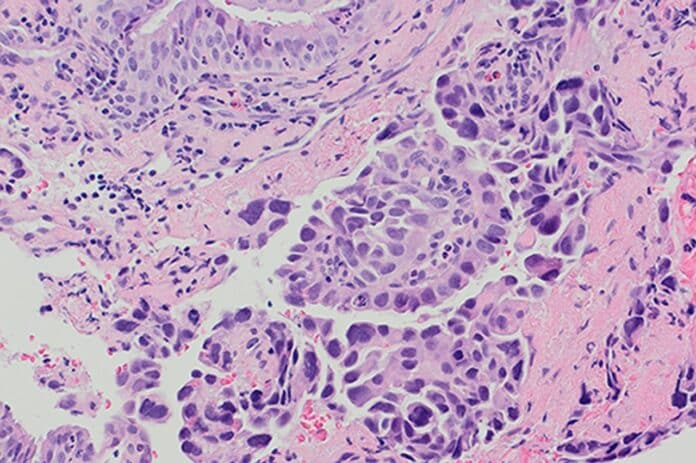The University of Bristol conducted the biggest review on lung-spread brain cancer, discovering abnormalities that suggest licensed drugs might treat the disease. Published in Neuro-Oncology Advances, the research also identified genetic distinctions between smokers and non-smokers.
About 25,000 UK patients have cancer that spreads to the brain, mainly from lung and breast cancer, leading to death in most cases. While genetic mutations in primary lung cancers are well-studied, less is known about changes when cancer spreads to the brain.
Researchers aimed to understand genetic changes in brain metastasis from non-small cell lung cancer (NSCLC) and identify existing drugs for potential treatment. Their review of 72 papers included data from 2,346 patients, covering demographics, smoking status, genomic data, matched primary NSCLC, and PD-L1 protein presence on cancer cells.
The study identified common gene mutations in brain metastases from lung cancer, including EGFR, TP53, KRAS, CDKN2A, and STK11. Notably, missense mutations like EGFR L858R and KRAS G12C were prevalent.
Genetic variations were sometimes distinct in brain metastasis compared to primary lung cancer, and differences were noted between smokers and non-smokers, especially in TP53 and EGFR mutations. Among the top ten commonly mutated genes, 37% showed differences between primary lung cancer and brain metastases. The researchers propose testing existing, approved drugs in clinical trials as potential treatments for this disease.
The genetic makeup of various subtypes of NSCLC is well-documented, with common mutations like TP53 and LRP1B found across all subtypes. Lung adenocarcinoma, the most prevalent lung cancer type, exhibits higher frequencies of specific mutations such as KRAS, EGFR, KEAP1, STK11, MET, and BRAF.
Studies indicate differences in the genomic landscape of NSCLC between smokers and non-smokers, independent of subtype. Non-smokers show a higher prevalence of EGFR mutations, ROS1, and ALK fusions, while smokers commonly have mutations in KRAS, TP53, BRAF, JAK2, JAK3, and mismatch repair genes.
Kathreena Kurian, Professor of Neuropathology and Honorary Consultant at North Bristol NHS Trust, Head of the Brain Tumour Research Centre at the University of Bristol, and co-author of the paper, said: “Our research recommends that all patients should have their brain metastasis examined for mutations in addition to their primary lung cancer because they may be different. This evidence could form the backbone for new clinical trials for patients with brain metastasis in non-small cell lung cancer using drugs that are already available.”
The study sheds light on the potential of repurposing existing drugs to treat secondary brain cancer, providing a hopeful avenue for future clinical trials. This research contributes to the ongoing efforts to improve outcomes for patients facing metastatic cancer in the brain.
Journal reference:
- Lily J Andrews, Zak A Thornton et al., Genomic Landscape and Actionable Mutations of Brain Metastases derived from Non-Small Cell Lung Cancer: a systematic review. Neuro-Oncology Advances. DOI: 10.1093/noajnl/vdad145.
